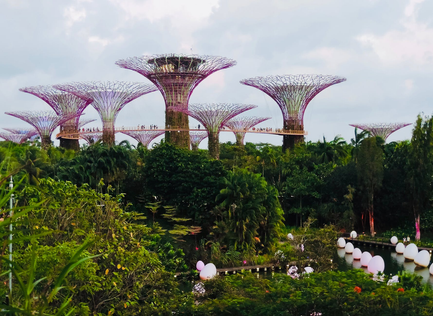
Apply to a foreign university with confidence
- Properly fulfilled documents
- Perfect motivation letter
- Support from a personal mentor
- Offers from several universities
Article score: 5 out of 5 (1 review)
Everything you need to know about language courses in Indonesia: types of programs, tutition fees, admission process, accomodation options and teaching.
Free consultation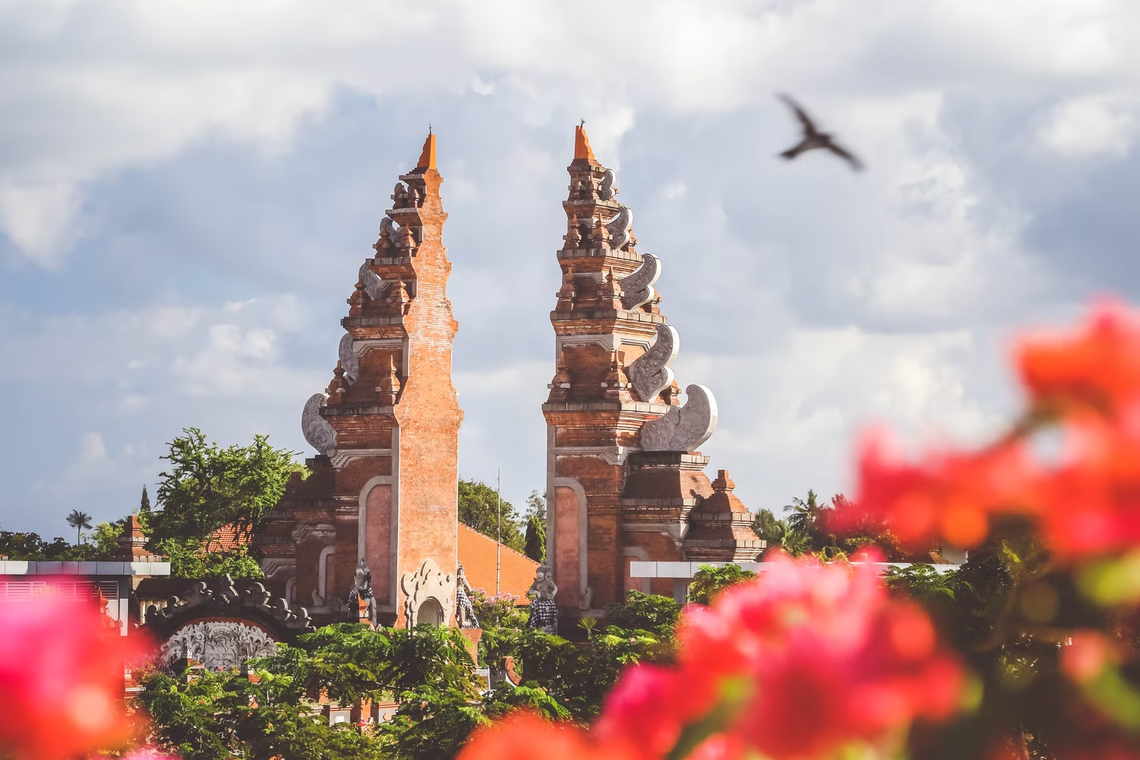
English courses in Indonesia — the choice of students who want to combine English learning with a vacation in one of the most popular tourist destinations. Beaches, cool gardens, and evergreen forests, along with surfing and excursions at the foot of volcanoes await after class. And of course, the low cost of courses is a nice bonus.

| School | Program | Weeks | Tuition fee/week | Cities | Apartment | Hotel |
|---|---|---|---|---|---|---|
| IALF | General English | 8+ | 16 USD | Jakarta, Surabaya, Bali | 534-602 USD/month | 37-45 USD/day |
| IELTS Prep | 2-5 | 53-178 USD | ||||
| Academic English | 4+ | 53 USD | ||||
| Teacher Training | 1-5 | 50-250 USD |
UniPage works only with accredited schools that provide accommodation and allow you to apply for a visa. We will tell you what language learning options are available in Indonesia, select the type and intensity of the program in accordance with your goals, and help you understand the intricacies of the contract.
You will also be able to receive discounts and special offers that are only available through our agency.
| Type of program | Intensity | Group | Min. language requirements | Cost |
|---|---|---|---|---|
| General English | 5-10 | 7-14 | Beginner | 131 USD/course |
| Conversational English | 5-10 | 4-14 | Elementary | On request |
| Business English | 20-25 | 4-10 | Pre-Intermediate | On request |
| IELTS / TOEFL / PTE Preparation Course | 10-25 | 7-10 | Pre-Intermediate | 113 USD/week |
| Academic English / University Pathway | 10-25 | 7-14 | Elementary | 211 USD/course |
| Teacher Training | 1-5 | 6-12 | Upper-Intermediate | 250 USD/course |
English courses in Indonesia are not very diverse, but they have everything you need:
General English courses are divided into modules that correspond to each language level. The duration of a module is 8 weeks, after which the student can move to a more advanced group.
Conversational English is a practical course in spoken English. Students learn vocabulary and syntax, talk to native speakers and each other, as well as work on their accent.
Business English — courses for those who want to work in an English-speaking environment. Students analyze vocabulary, learn to negotiate, pass interviews, and make presentations. Such courses do not provide fundamental knowledge, so the minimum required language level is Pre-Intermediate. Most often, Business English programs include 30-36 hours of classes, and their duration and intensity can be varied.
IELTS / TOEFL / PTE Preparation — courses for international language exams. In the classroom, students develop their reading, writing, speaking, and listening skills. They also analyze the questions on a real exam and practice solving them. At some schools, you can take an IELTS mock exam for 36 USD and receive feedback from an exam expert. The duration of these courses is from 2 to 12 weeks.
Academic English / University Pathway — preparation for studying at English-speaking universities. Students learn to write essays in English, take notes, make presentations and reports, and defend their point of view in debates. The duration of academic programs is from 4 to 12 weeks. Depending on the school, the minimum required language level is Elementary or Pre-Intermediate. It is worth noting that Pathway in Indonesia only prepares students for higher education, but does not guarantee admission to a university without language exams.
Teacher Training — practical training for teachers. The minimum required language level is Upper-Intermediate. In the classroom, students conduct in-depth language analysis and learn methods of teaching English to foreigners. The duration and intensity of such courses vary — you can attend class for 1 hour a week for 5 weeks, or complete the course in an accelerated mode within a week.
Indonesian is the main language of instruction at universities. There are few English-language programs in the country, so universities do not tend to offer English courses. However, some universities have intensive programs for learning Indonesian[2].

Enrollment at Indonesian language schools takes place throughout the year. Classes start every 2 weeks on Tuesdays.
To enroll in a language course, you need to:
Indonesia does not issue student visas for language courses[3]. Therefore, all programs in the country last no more than 6 months — the maximum period of stay on a tourist visa.
Courses at Indonesian language schools are held in small groups — a maximum of 14 people. This is unusual for Asia — in other countries of the region, the number of students can reach up to 20 people per group.
Courses are taught by native speakers and Indonesians with international TESOL certification. In the classroom, they emphasize the development of conversational skills, recreate real life situations, and involve students in discussions and games. A lot of time is also devoted to independent work. Courses in Indonesia are often mixed format — some classes take place at school, while others are conducted online.
Throughout their studies, students take several tests and a final exam at the end of the module. At the end of the course, students receive a certificate and a detailed report from the teacher.
Classes are held in the morning. This allows students to devote their afternoons to visiting the popular tourist attractions of Jakarta or Bali, the national parks of Tanjung Puting and Komodo, famous Indonesian volcanoes, and much more. Schools do not organize entertainment programs, but the staff is always ready to suggest where you can have a pleasant time.
Also, schools do not provide housing for their students. Most often, students live in hotels or rent apartments.
Indonesia is a Muslim country. Islam is practiced on every island of the archipelago. Bali is an exception, where Balinese Hinduism is more common[5].
Language courses are taught according to Western standards, but the rules outside of school differ from the norms we may be used to. Here, it is considered indecent to look at praying people, stand next to them, or take pictures. It is customary to eat only with your right hand, because the left is considered "unclean". The severity of rules depends on the area in which you are located. Moreover, restrictions often do not apply to tourists and students. However, it is better to study the rules of conduct before arriving in order to avoid problems with the law or misunderstandings with the locals.
In April-May, Muslims fast for Ramadan. Before sunset, you cannot eat or even drink water. Restrictions do not apply to foreigners, but shops and establishments may be closed during the fast. Courses at language schools may be reduced.

| Accommodation options | Meals | Number of people in a room | Average cost |
|---|---|---|---|
| Apartment | None | 1-3 | 308 USD/month |
| Hotel | Optional | 1-2 | 23 USD/day |
| Expenses | Avg. cost | |
|---|---|---|
| Consular fee | 30 USD | 50 USD |
| Medical insurance | 101 USD/month. | |
| Registration fee | 4 USD | |
| Trial IELTS | 36 USD | |
| Service | Cost |
|---|---|
| Complete guidance in registering for courses — language schools abroad | 38,000 ₽ |
| Complete guidance in the admission process — university language courses | from 75,000 ₽ |
| Visa guidance | 32,000 — 69,000 ₽ |

For trips to Indonesia up to 30 days, citizens of most countries do not need to apply for a visa in advance. It will be issued right at the airport[1]. You can extend your visa for another 30 days without leaving the country. To do so, you need to contact the migration service. The cost of registration and renewal is 35 USD.
To obtain an entry visa (Visa on Arrival) to Indonesia, you need to have:
For longer courses, a tourist visa is required. Its validity period is 60 days, though it can also be extended while in the country. As such, the total length of stay in the country is 180 days.
Required documents for a tourist visa:
A tourist visa costs 50 USD. The term of consideration is from 5 business days.
To legally work in Indonesia, you need to obtain a work visa (KITAS) and a special permit (IMTA) from the Ministry of Manpower. It is impossible to work in the country with an entry or tourist visa. Illegal employment is punishable by a fine of 29,732 USD, deportation, and a visa ban in the future.
IALF was opened in 1989 in the country's capital, Jakarta. Now, there are also branches in Surabaya and Bali. The school offers a variety of courses — General and Academic English, international language exam preparation, and practical training for teachers. You can also take a trial IELTS exam and receive detailed feedback from a real examiner.
The average course cost at IALF is 91 USD per week.
SIB School of Language is located in Jakarta and offers courses in English, Indonesian, and Mandarin Chinese. General courses, Business English programs, and IELTS preparation are available. Also, the school regularly hosts seminars and workshops where students learn about the history and culture of Indonesia.

| Population | 10.5 million people |
| Monthly expenses | 444 USD |
| Attractions | Merdeka Palace, Taman Mini Indonesia Indah, Thousand Islands, Monas Monument, Istiqlal Mosque, Old City, National Museum of Indonesia, Jin De Yuan Temple, Taman Suropati Park |
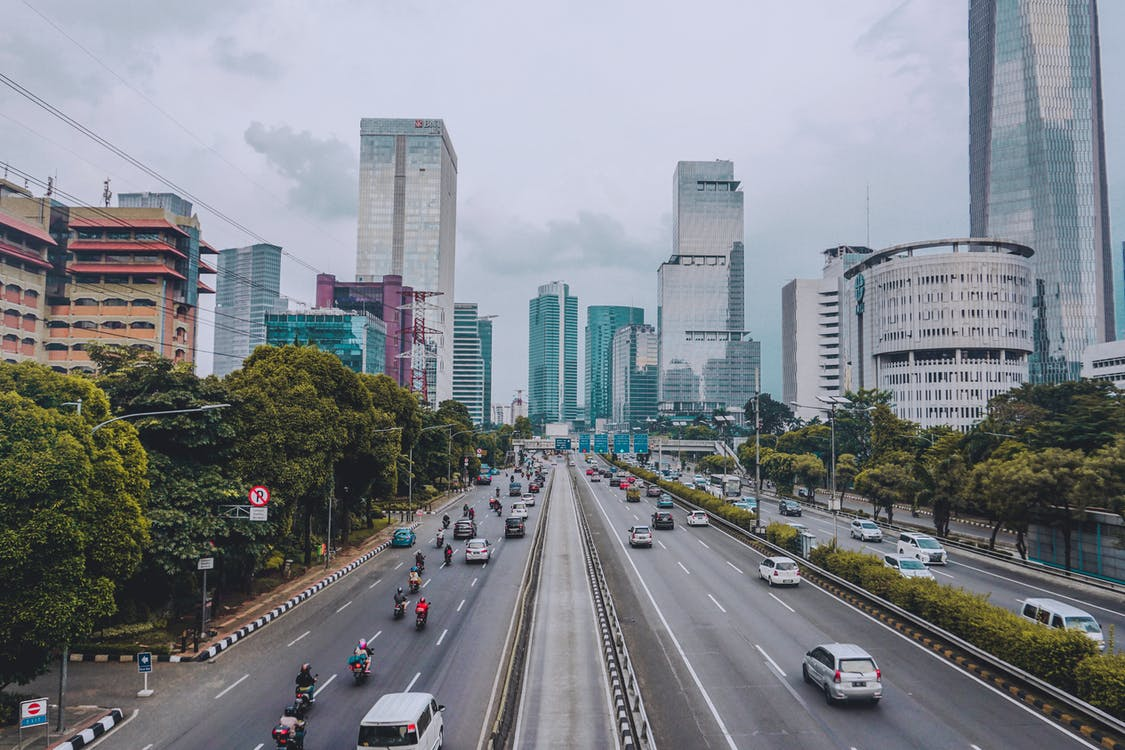
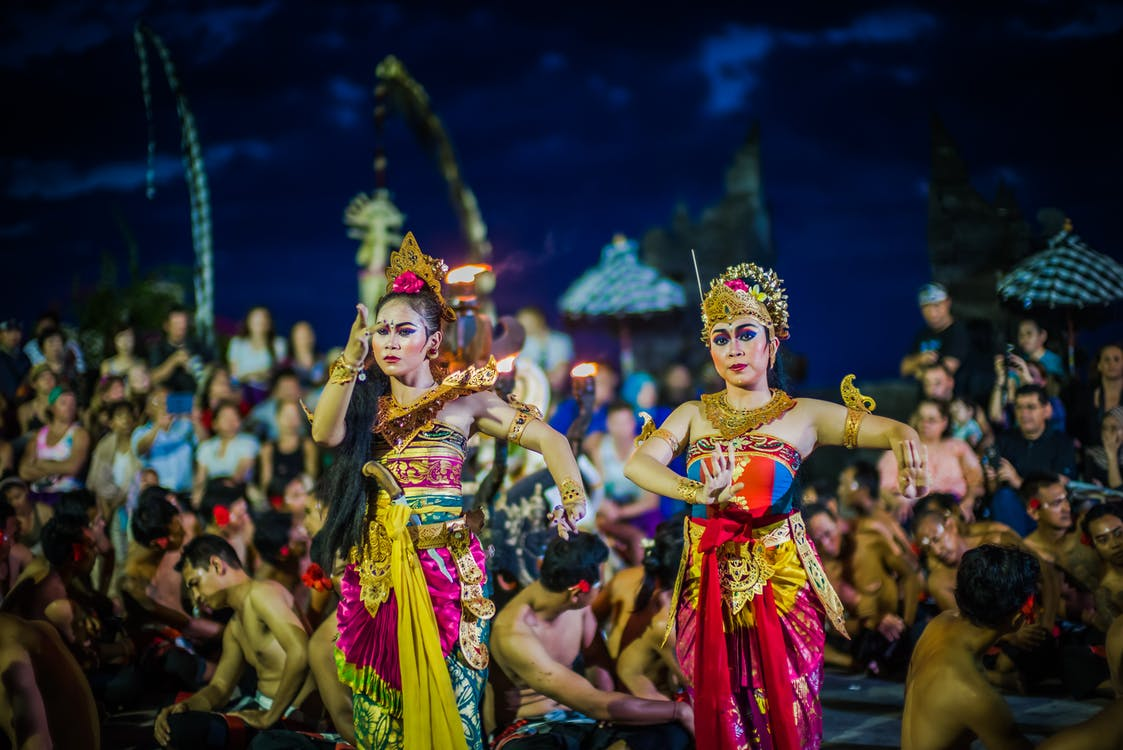
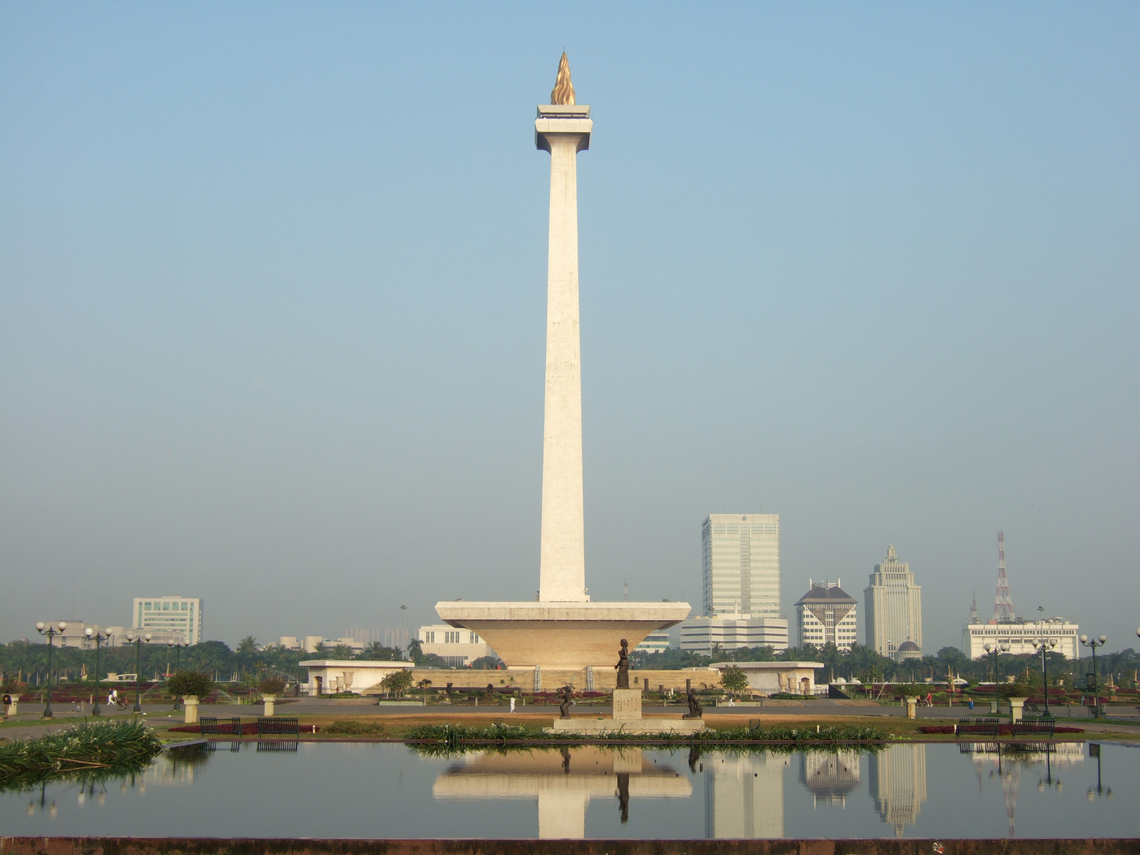
| Population | 3 million people |
| Monthly expenses | 387 USD |
| Attractions | Giray Kelahiran Church, House of Sampoerna, Masjid Al Akbar Surabaya Mosque, Pasar Ampel Market, Zoo, Suramadu Cable Bridge, Shark and Crocodile Monument, Tugu Pahlawan Heroes Monument |
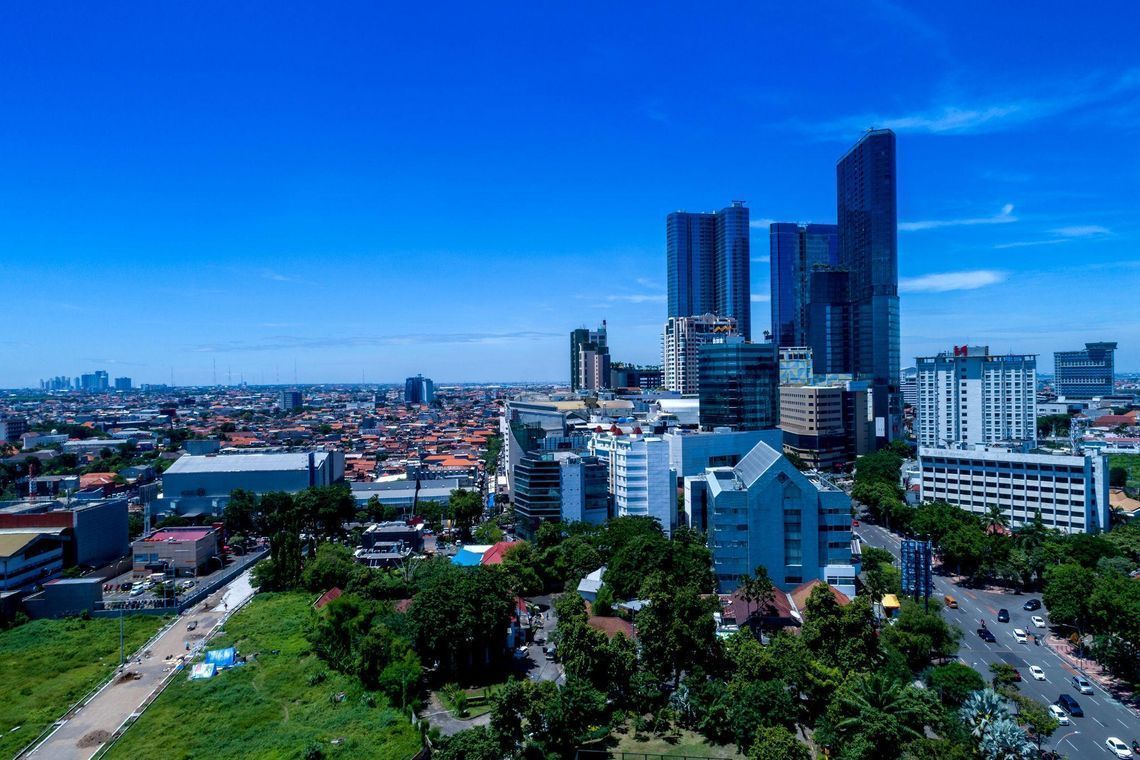
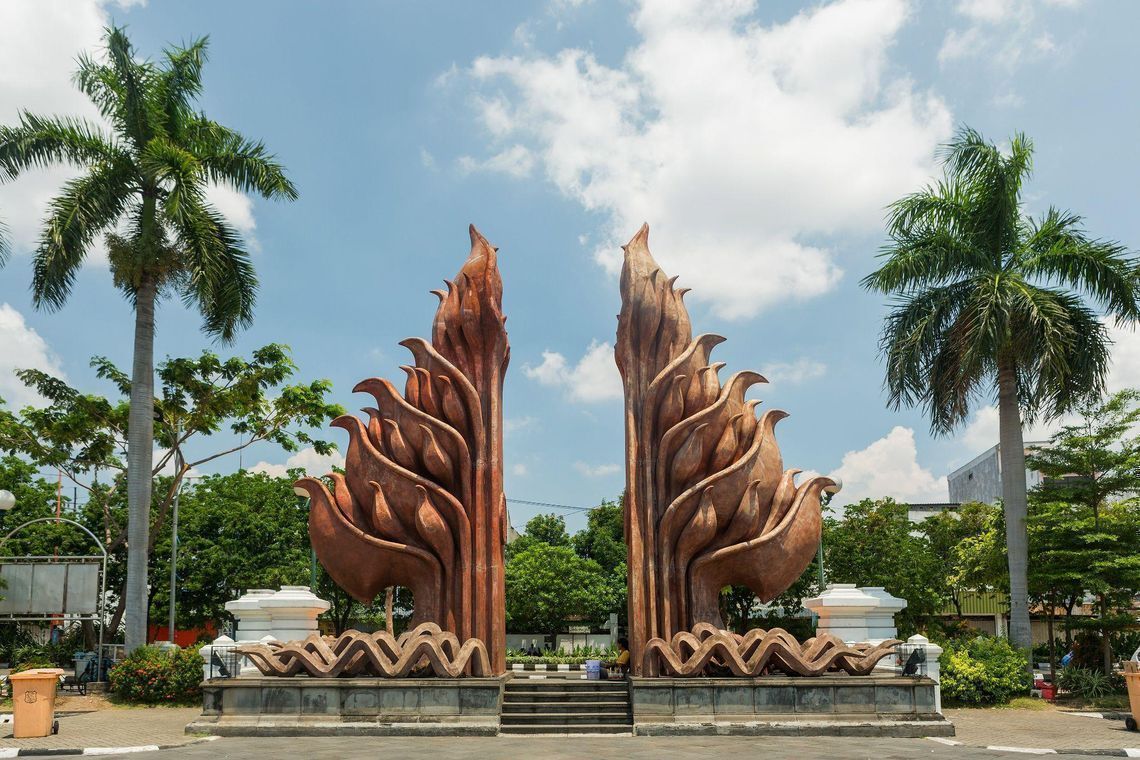
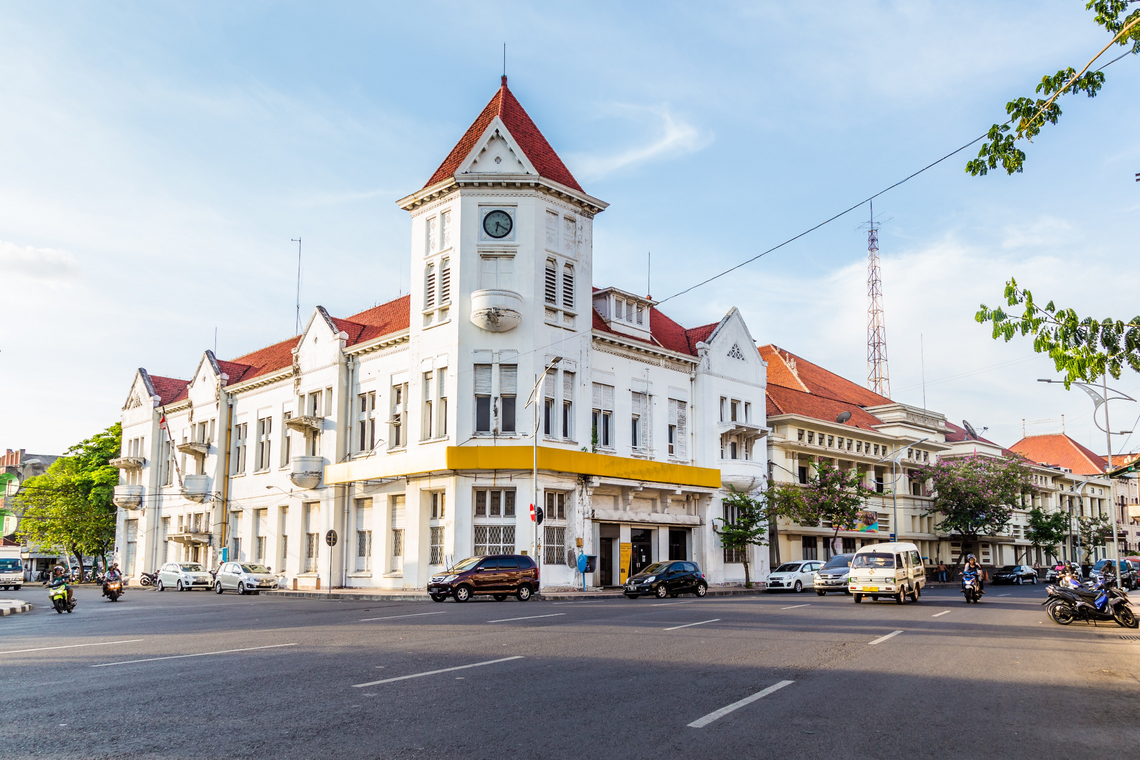
| Population | 3.8 million people |
| Monthly expenses | 461 USD |
| Attractions | Besakih Temple, Taman Ayun Temple, Gunung Kawi, Pura Ulun Danu Bratan, Pura Tirta Empul Springs, Luhur Lempuyang Temple, Elephant Cave |
60+ countries
we work with
$1,000,000 saved
by students through scholarships
6,400 offers
our students got